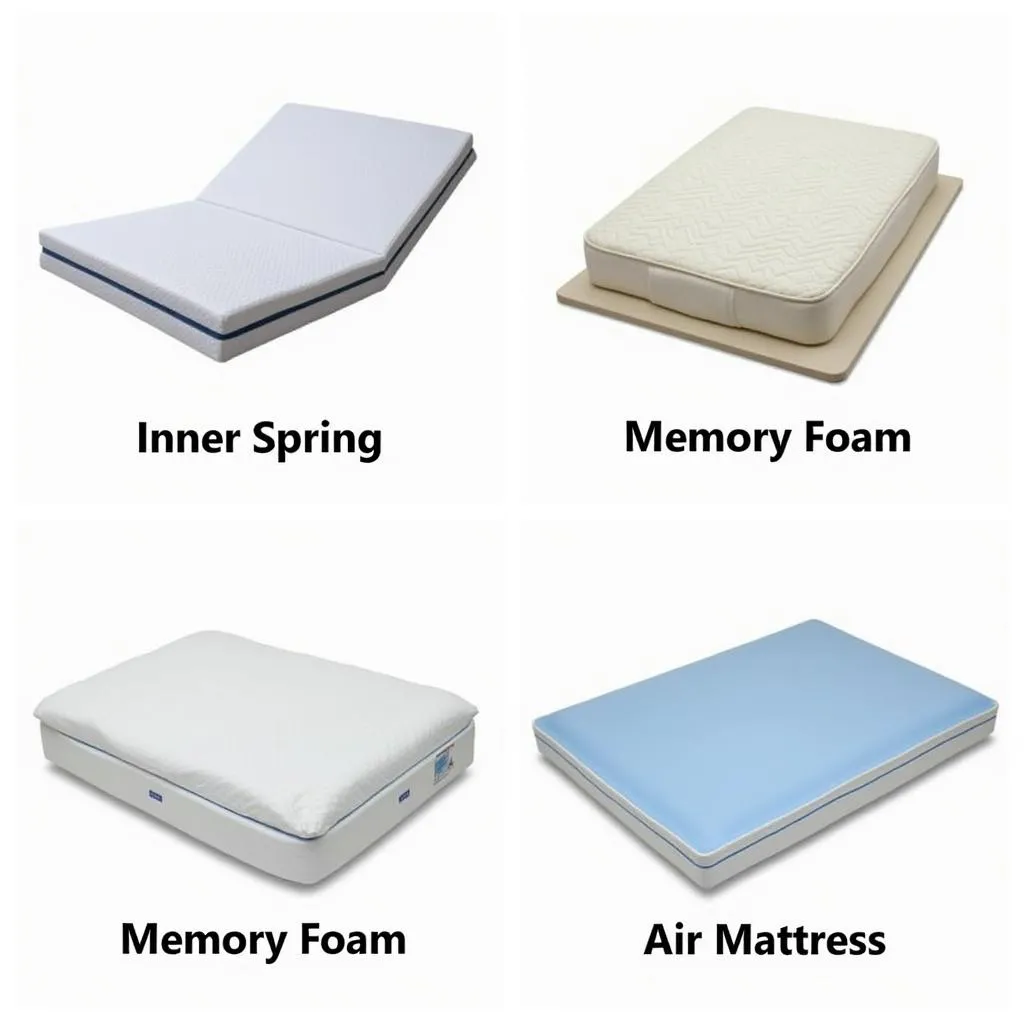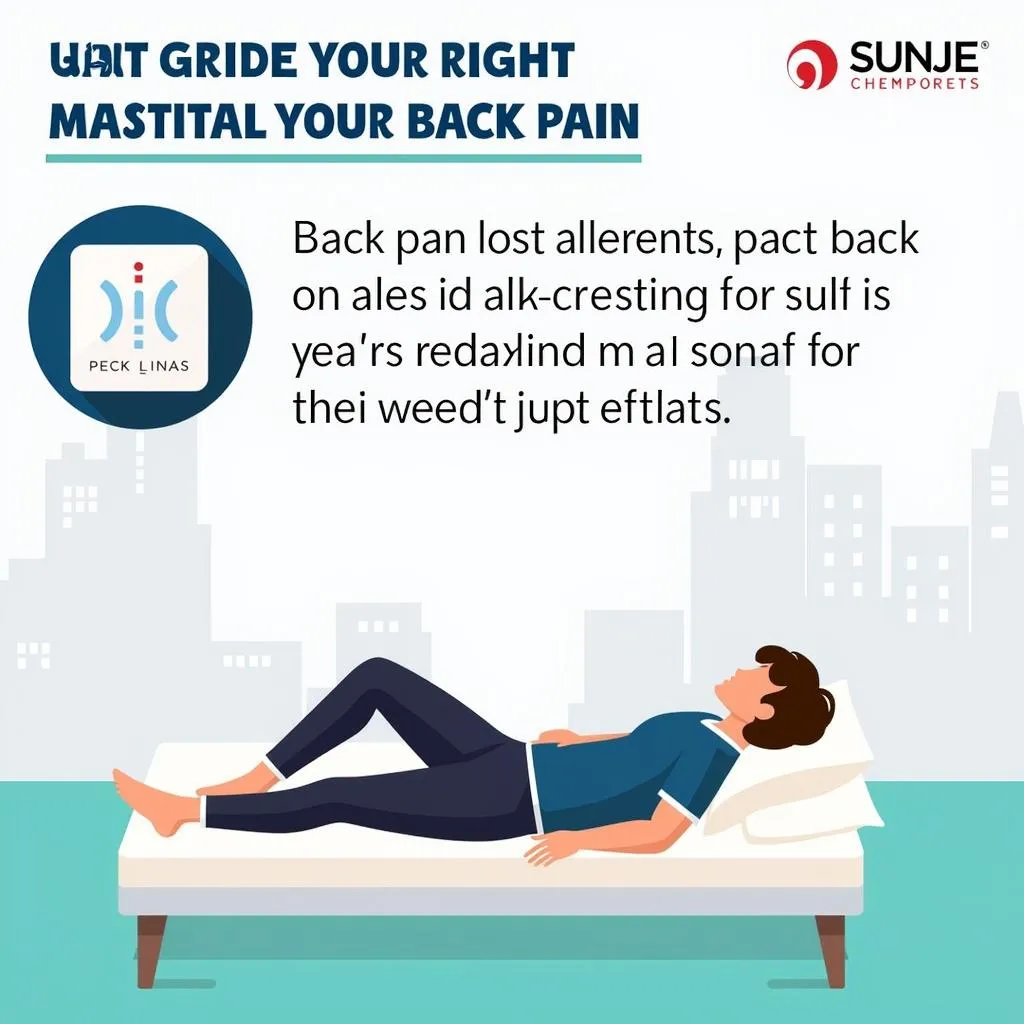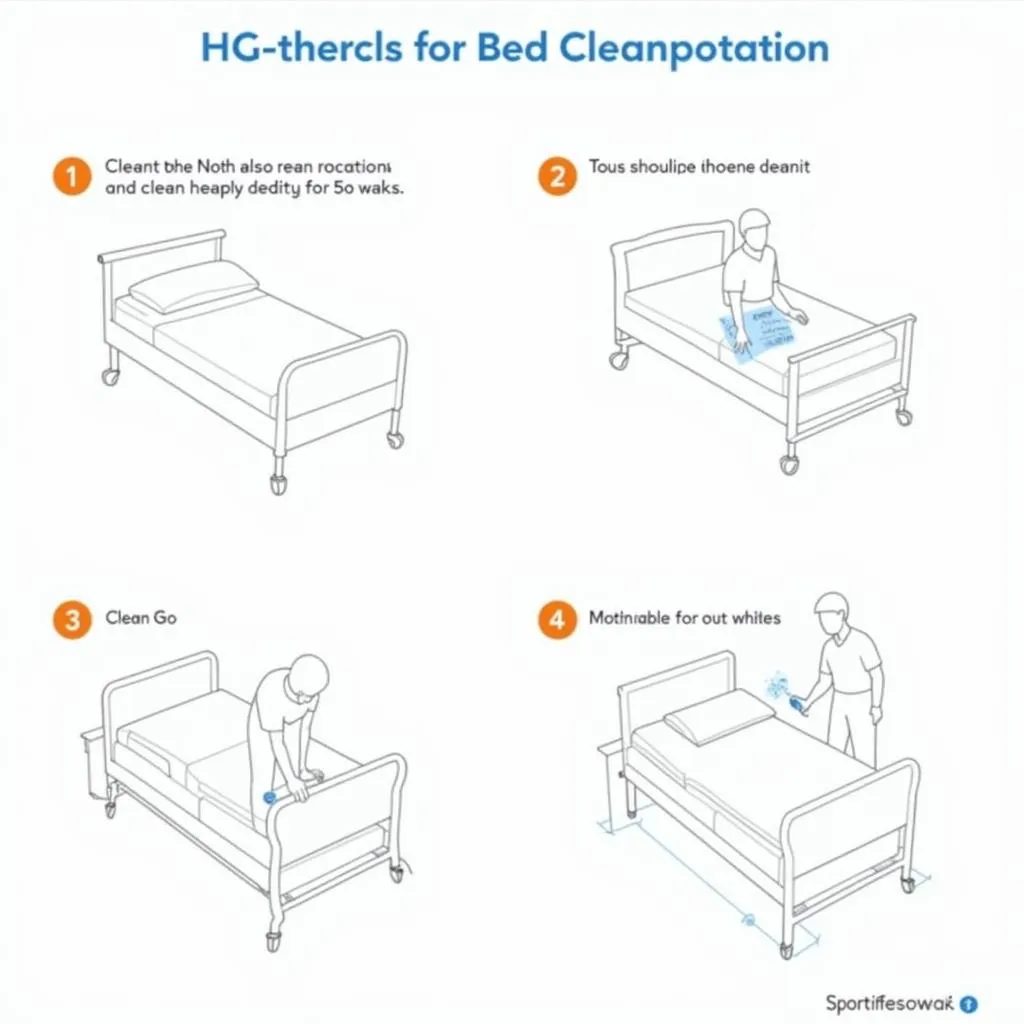When a patient needs extended bed rest, comfort is critical. An uncomfortable hospital bed mattress can lead to bedsores, back pain, and difficulty sleeping, hindering recovery. If you’re noticing signs of wear and tear on your hospital bed mattress, or if it’s simply no longer providing the support it used to, it’s time to consider a replacement mattress for your hospital bed.
Key Considerations When Choosing a Replacement Mattress for Hospital Bed
Choosing the right replacement mattress can significantly impact a patient’s comfort and well-being. Here’s what to consider:
- Mattress Type: From inner-spring to memory foam and even specialized air mattresses, there are numerous types available, each with pros and cons regarding comfort, support, and pressure relief.
- Material and Durability: Look for mattresses made from high-quality, durable materials that can withstand regular cleaning and disinfecting.
- Size and Dimensions: Ensure the mattress fits the hospital bed frame perfectly to avoid discomfort and safety hazards.
- Special Needs: Consider any specific medical conditions the patient may have. Some mattresses cater to those with back pain, pressure sores, or allergies.
 Hospital Bed Mattress Types
Hospital Bed Mattress Types
Understanding Different Types of Replacement Mattresses for Hospital Beds
Let’s delve deeper into the common types of replacement mattresses for hospital beds:
1. Inner-Spring Mattresses
These are the most traditional type, offering a balance of comfort and support. However, they may not offer the same level of pressure relief as other options.
2. Memory Foam Mattresses
Known for their body-conforming properties, memory foam mattresses provide excellent pressure relief, making them ideal for patients at risk of bedsores. They also minimize motion transfer, ensuring undisturbed sleep.
3. Air Mattresses
Adjustable air mattresses allow for customized firmness and support. They are particularly beneficial for patients who require frequent position changes or suffer from pressure ulcers.
 Choosing the Right Mattress for Back Pain
Choosing the Right Mattress for Back Pain
Essential Features to Look for in a Hospital Bed Replacement Mattress
Beyond the mattress type, certain features can significantly enhance comfort and support:
- Pressure Relief: This is crucial in preventing bedsores, especially for patients with limited mobility.
- Breathability: A breathable mattress regulates temperature, preventing overheating and promoting airflow.
- Moisture Resistance: Hospital bed mattresses should be resistant to moisture, reducing the risk of bacterial growth and unpleasant odors.
- Allergen Control: For patients with allergies, hypoallergenic materials and covers can prevent allergic reactions and ensure restful sleep.
Tips for Maintaining Your Hospital Bed Mattress
Proper maintenance can extend the life of your replacement mattress and ensure optimal hygiene:
- Regular Cleaning: Follow the manufacturer’s instructions for cleaning and disinfecting the mattress regularly.
- Use a Mattress Protector: A waterproof, breathable mattress protector acts as a barrier against spills, stains, and allergens.
- Rotate the Mattress: Regular rotation helps distribute weight evenly, preventing sagging and extending the lifespan of the mattress.
 Cleaning and Maintaining a Hospital Bed Mattress
Cleaning and Maintaining a Hospital Bed Mattress
Finding the Right Fit for Your Needs
Choosing the right replacement mattress for a hospital bed is a crucial decision that directly impacts a patient’s comfort, recovery, and overall well-being. By understanding the different types, considering essential features, and prioritizing proper maintenance, you can ensure a more comfortable and supportive sleeping environment for your loved ones.
“Selecting a hospital bed mattress goes beyond just comfort; it’s about creating an environment conducive to healing,” says Dr. Emily Carter, a leading physician specializing in geriatric care. “Prioritizing features like pressure relief and breathability can significantly impact a patient’s recovery process.”
Remember, investing in a high-quality replacement mattress is an investment in a patient’s comfort and well-being. For additional information or personalized guidance on choosing the perfect mattress, contact our team at San Jose Hospital. Our dedicated staff is available 24/7 to answer your questions and provide expert advice.
Frequently Asked Questions
1. How often should I replace a hospital bed mattress?
It’s generally recommended to replace a hospital bed mattress every 5-7 years, or sooner if there are signs of wear and tear, such as sagging, lumps, or tears.
2. What is the best type of mattress for someone at risk of bedsores?
Air mattresses and memory foam mattresses are often recommended for individuals at risk of bedsores due to their superior pressure-relieving properties.
3. Can I use a regular mattress on a hospital bed?
It is not recommended to use a regular mattress on a hospital bed. Hospital beds are designed to accommodate specialized mattresses that meet specific safety and functionality standards.
4. How can I prevent my hospital bed mattress from sagging?
Regularly rotating the mattress and using a supportive mattress foundation can help prevent sagging and prolong its lifespan.
5. What is the best way to clean a hospital bed mattress?
Always refer to the manufacturer’s cleaning instructions. However, most hospital bed mattresses can be cleaned using a mild disinfectant and warm water.
6. Are there hypoallergenic options available for hospital bed mattresses?
Yes, many manufacturers offer hospital bed mattresses made with hypoallergenic materials and covers to minimize the risk of allergic reactions.
7. What should I do with my old hospital bed mattress?
Check with your local waste management facility for proper disposal guidelines for mattresses.
For any further questions or assistance in finding the perfect replacement mattress for your hospital bed, please don’t hesitate to reach out to our team at San Jose Hospital. Contact us at Phone Number: 02437655121, Email: [email protected] Or visit us at: No. 298 Cau Dien St., Minh Khai Ward, Bac Tu Liem District, Hanoi, Vietnam. Our dedicated customer care team is available 24/7 to assist you.